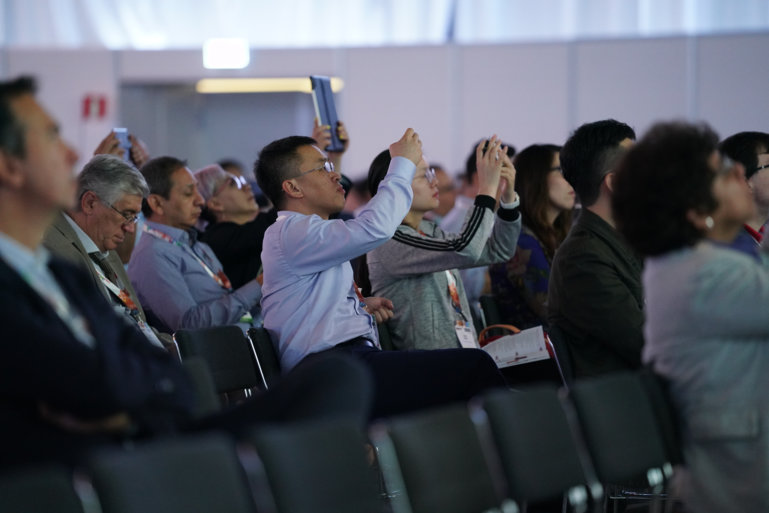With nutriceuticals regularly making headlines for their alleged benefits in the treatment or prevention of cancer, some clinicians are endeavouring to scientifically investigate claims and dispel fake news that can give false hope to patients."It’s the only way forward to put these compounds to rigorous scientific testing,” says Prof Thomas Seufferlein, Ulm University Hospital, Germany, who yesterday presented results of the MIRACLE trial which compared the effects of green tea extract with placebo on recurrence of colorectal adenomas (CAs) and possible prevention of colorectal cancer. (LBA 1890).Although the prospective, double-blind trial showed that there was a non-significant reduction in CAs in patients taking extract containing 300 mg epigallocatechingallate (EGCG) daily, it shed light on which types of nutriceuticals are most suitable for scientific study and the challenges which need to be overcome."We need to start with laboratory research on well defined compounds to establish pharmacology and, if the evidence is good, move to small and then larger clinical studies, depending on the data. We may be surprised that some compounds will work, others won’t, but if we don’t do the research, we can’t effectively challenge the claims.”Seufferlein and his team decided to test green tea extract containing a defined amount of EGCG, because in contrast to many food and other supplements marketed for cancer prevention, there was already preclinical and some clinical evidence supporting its safety profile and antineoplastic effects in the large bowel from Asian trials (2-4). To ensure the research was based on a sound scientific basis, a preliminary nutrikinetic study was performed to assess variability in pharmacokinetics between individuals.(5)Although the outcomes from the MIRACLE trial were not significant – a recurrence of CA was seen in 51.1% of those taking ECGP, compared to 55.7% with placebo (p=0.077) amongst the 1001 patients who took part in the study – further research is planned to investigate whether an increased daily dose may improve efficacy without additional adverse events. The aim of Seufferlein and colleagues is to help patients understand the real efficacy and toxicity of the products they believe are protecting or improving their health – which they will probably take anyway, whether strong supporting evidence of their efficacy exists or not."In our study we observed that patients were motivated to take the two capsules for three years, and popularity of nutriceuticals should encourage researchers to invest more in this area,” adds Seufferlein. He stresses the advantages of clinicians joining forces with their pharmacologist colleagues to optimise understanding of the pharmacokinetics of the agents they are using. "If we’re going to advance our understanding of these food and other supplements in cancer prevention, we need to know what we’re dealing with before we start. We also need to do everything we can to control for factors that may influence the effects of these compounds and, of course, we need to ensure we are giving something with minimal toxicity to patients who are otherwise healthy particularly in a cancer prevention setting,” concludes Seufferlein.
The case of green tea extract discussed at ESMO 2019






